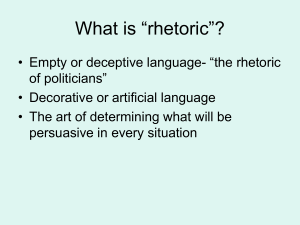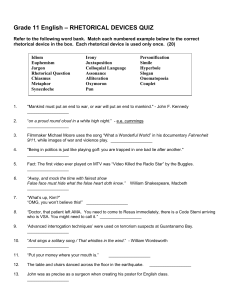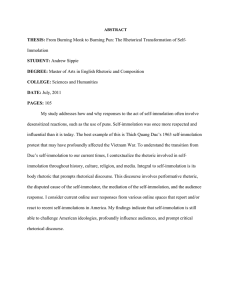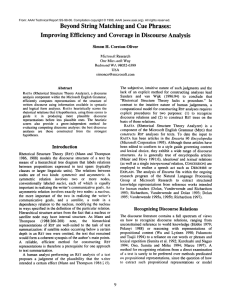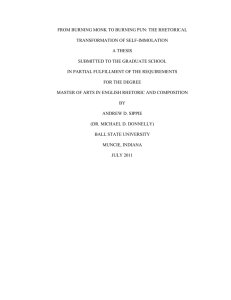Learning Outcomes Assessment: Bachelor of Arts in English, Rhetorical Studies Emphasis
advertisement
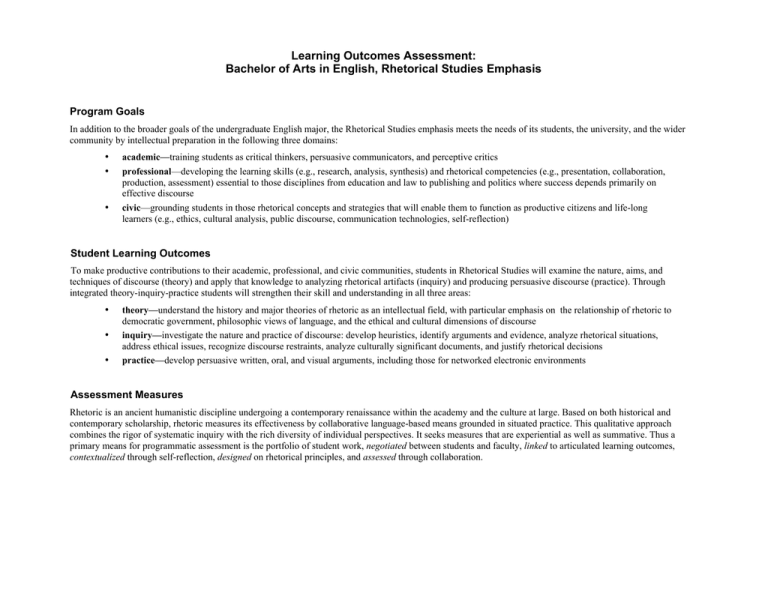
Learning Outcomes Assessment: Bachelor of Arts in English, Rhetorical Studies Emphasis Program Goals In addition to the broader goals of the undergraduate English major, the Rhetorical Studies emphasis meets the needs of its students, the university, and the wider community by intellectual preparation in the following three domains: • • • academic—training students as critical thinkers, persuasive communicators, and perceptive critics professional—developing the learning skills (e.g., research, analysis, synthesis) and rhetorical competencies (e.g., presentation, collaboration, production, assessment) essential to those disciplines from education and law to publishing and politics where success depends primarily on effective discourse civic—grounding students in those rhetorical concepts and strategies that will enable them to function as productive citizens and life-long learners (e.g., ethics, cultural analysis, public discourse, communication technologies, self-reflection) Student Learning Outcomes To make productive contributions to their academic, professional, and civic communities, students in Rhetorical Studies will examine the nature, aims, and techniques of discourse (theory) and apply that knowledge to analyzing rhetorical artifacts (inquiry) and producing persuasive discourse (practice). Through integrated theory-inquiry-practice students will strengthen their skill and understanding in all three areas: • • • theory—understand the history and major theories of rhetoric as an intellectual field, with particular emphasis on the relationship of rhetoric to democratic government, philosophic views of language, and the ethical and cultural dimensions of discourse inquiry—investigate the nature and practice of discourse: develop heuristics, identify arguments and evidence, analyze rhetorical situations, address ethical issues, recognize discourse restraints, analyze culturally significant documents, and justify rhetorical decisions practice—develop persuasive written, oral, and visual arguments, including those for networked electronic environments Assessment Measures Rhetoric is an ancient humanistic discipline undergoing a contemporary renaissance within the academy and the culture at large. Based on both historical and contemporary scholarship, rhetoric measures its effectiveness by collaborative language-based means grounded in situated practice. This qualitative approach combines the rigor of systematic inquiry with the rich diversity of individual perspectives. It seeks measures that are experiential as well as summative. Thus a primary means for programmatic assessment is the portfolio of student work, negotiated between students and faculty, linked to articulated learning outcomes, contextualized through self-reflection, designed on rhetorical principles, and assessed through collaboration.



